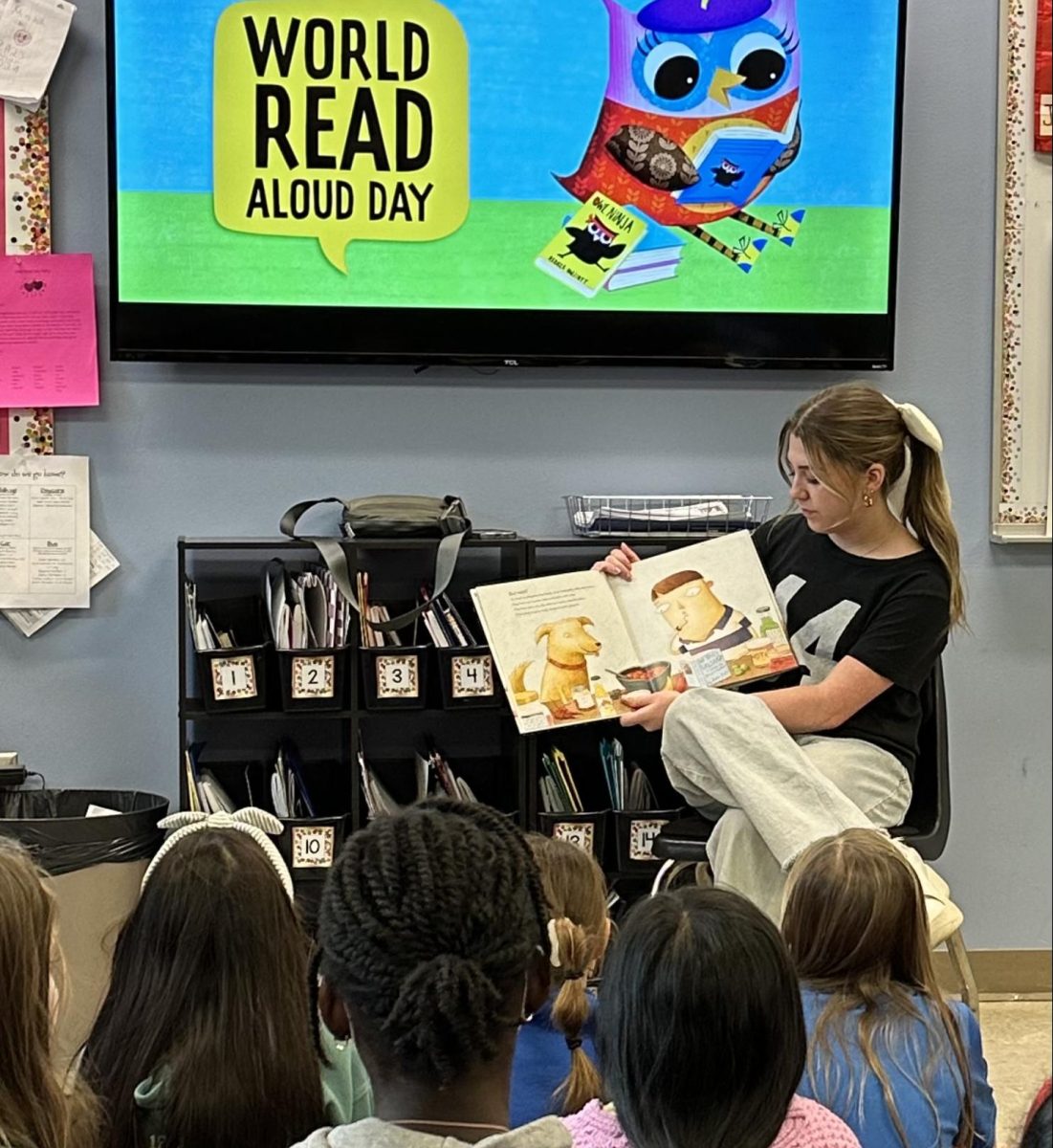Destigmatizing Voluntary Childlessness
Image used from Pexels.com
January 25, 2023
Historically, to be a woman has meant to be a mother.
Since the 1970s the “modern woman” has been on the rise, depicted as a hard worker who always looked stylish and young, a strong force in the workplace. She was powerful, but she was shunned because after world war two, the nuclear family living in suburbia was idolized.
The tv dinners, the daytime television, the wives in their aprons vacuuming the house in their pearls while the husband was at work, waiting for the children to get home from school. The entire community of “traditional” families shunned all singles, seeing them as defying and ruining the American dream for the rest of them.
In the 1970s, American family researcher Margaret Movius argued that “the childfree alternative” should be viewed as “women’s ultimate liberation.” According to Movius, the childfree alternative led to a multitude of advantages for women such as equal sex role status to men, enough time to have a life of her own, and a more successful career. We as a society must normalize and embrace a woman’s choice to not have children.
Motherhood is a demanding role. Taking care of your children while you attempt to manage a household and hold a stable job. Many women even lose their identities to motherhood. Voluntarily childfree women only seek liberation from the predetermined gender roles set by ancient society and are not so much anti-parenting as they are pro-identity. Meaning in life is a central topic of positive psychology, and is now considered an indicator of psychological well being. Childfree women, not compelled with the expectation of motherhood, cultivate other sources of life meaning- those not focused on only raising children.
This results in fulfillment. And personal growth. And that is exactly why we must destigmatize voluntary childlessness, because women who choose to not have children made their decision for a reason. They made their decision so they could retain their sense of personal identity.
So why should women not be expected to have children? Why should we get to pick where we go for dinner? Personal choice is the answer, no matter how big or small. Salisbury steak or chicken hawaiian wrap. Kids or no kids? It doesn’t matter.
Within the United States, we have seemingly built a nation on autonomy and individualism upholding the principle of freedom, but the stigmas that remain create a societal feeling of shame. While it may not be illegal to be childfree, society nevertheless makes it seem illegal in itself.
John Locke is a respected and renowned philosopher who many people use to champion their own personal choices and whose philosophies many nations have based their laws and societal structures upon. Locke’s idea was that every human is innately entitled to life and liberty. Personal choice is an act of liberty and has been respected in some sense for hundreds of years.
This creates a paradox, however, when we look at the stigma surrounding women having children. If society agrees to uphold the ideals of John Locke and has even agreed to base their Constitution upon them, then why do they continue to oppress a woman’s expression of personal choice by not having children? If we are to live in a society in which women are able to defy gender stereotypes, then we must apply the ideas of Locke- the inane right to liberty, thus personal choice- and dismantle the stereotypes surrounding women who choose to not have children.
Although it may not be illegal to be child free, society nevertheless makes it seem illegal in itself. It has been found that much of the population, including other women, view childfree women as cold, unnurturing, and even selfish. These stereotypes bleed over into daily interactions between coworkers or even friends. The knowing glances. The dismissive remarks. The endless barrage of questions. Many Americans view women who do not have children as ‘less fulfilled’ or ‘less happy’ than those who do have children. It is these viewpoints that depict non socially acceptable portrayals of childfree women when in reality, according to a study by Princeton University, couples with children and without have extremely similar levels of life satisfaction.
Seeing as these stereotypes continue to exist when they shouldn’t, how should we get rid of them?
First, we must start with ending the misconstrued information surrounding childless women. As society attempts to place women without children in a box, it is the job of those who care about personal autonomy and individuality to stand against the shame surrounding childfree women. As voluntarily childfree women are told by mothers, coworkers, and even panhandlers on the streets, that children will make them happier and their marriages better, the opposite is actually true. It has been found that, in defiance of the acceptable social attitudes, childfree couples report higher marital satisfaction, higher levels of marital adjustment, and more companionate marriages than their parental counterparts. Even as the data surrounding childfree women states there is nothing missing from their lives and they may even be performing better than women with children, society still continues to misconstrue the issue of childlessness to accommodate for the traditional genders roles pre-existing from ancient times till the more recent suburban, nuclear family.
An article published in 2011 was titled ‘At Midlife, Intentionally Childfree Women and Their Experiences of Regret’ and detailed how voluntarily childfree women felt ‘anxious’ and ‘regretful’ about their decision to not have children, but throughout the articles entirety, it never stated women regretted not having children. All the article did was mention two women, out of the 165.7 million in the United States alone and how they felt anxious they may regret having children one day. This is due to the consistent pressure by society that women will regret not having children, so, even when women are happy childfree, they still fear they will one day regret it because that is what they’ve been told hypothetically happens. The most disheartening aspect of this article is just that there are millions more like it. From mommy bloggers to proponents of ‘traditional’ christianity, millions of people share these same attitudes when there is no evidence backing these claims
In order to change the narrative surrounding childfree women, members of society must open their minds in order to better understand not only a woman’s decision to be childfree but also the surrounding circumstances of a woman’s decision. Everyone has different lifestyles and views, and, in a country such as America -one based on personal liberty- it is paramount that these differences remain respected.
In conclusion, the stigma surrounding childfree women must be removed. As society has changed throughout history, this stigma has remained stagnant to the detriment of the people- both men and women. This stigma must be removed as individual decisions should always be respected, and the shame surrounding childfree women can be removed by creating a new narrative focusing on ending the misinformation surrounding childfree women. Women shouldn’t have to be reproductive to be productive.


























Em • Jan 30, 2023 at 2:15 pm
I really liked the emphasis you placed on how our society conditions women into believing that they want to have children, regardless of if they actually do, and how this lack of respect for individual autonomy directly goes against our country’s founding principles. Pointing out this hypocrisy makes for an especially effective argument
Jessie Bradshaw • Jan 27, 2023 at 1:36 pm
I think this article represents the values of being strong independent women and setting ourselves apart from just being considered a “mother” after becoming one. Our roles as women shouldn’t shift due to this but obviously it will change. It’s important to be a mother and embrace motherhood but departing from your “old” life or continuing your career shouldn’t be looked down upon.